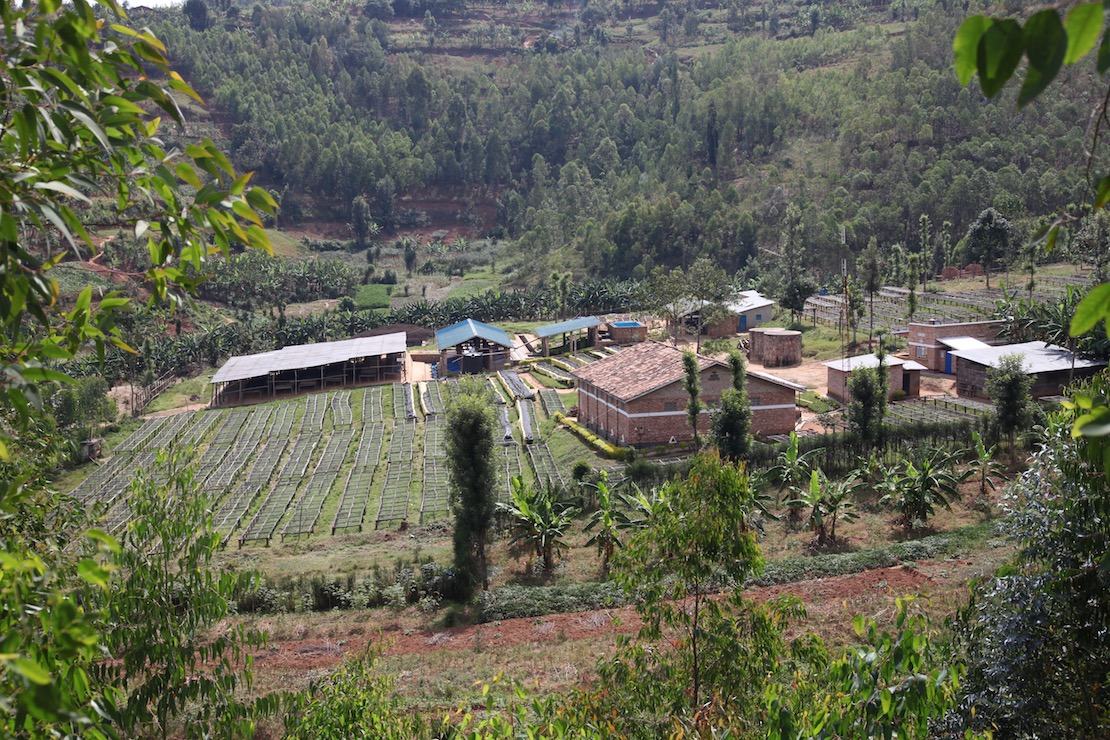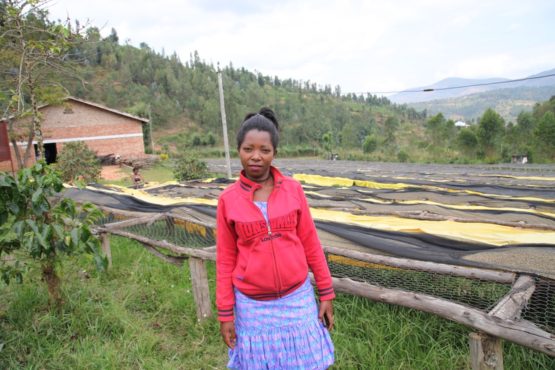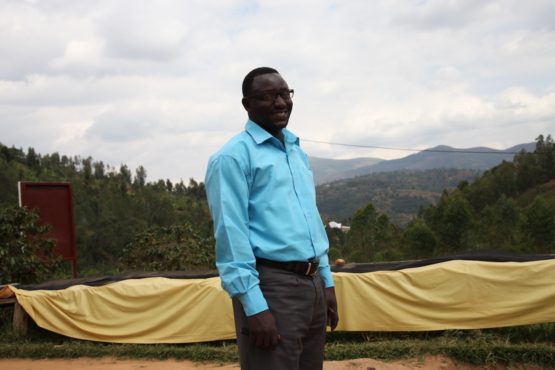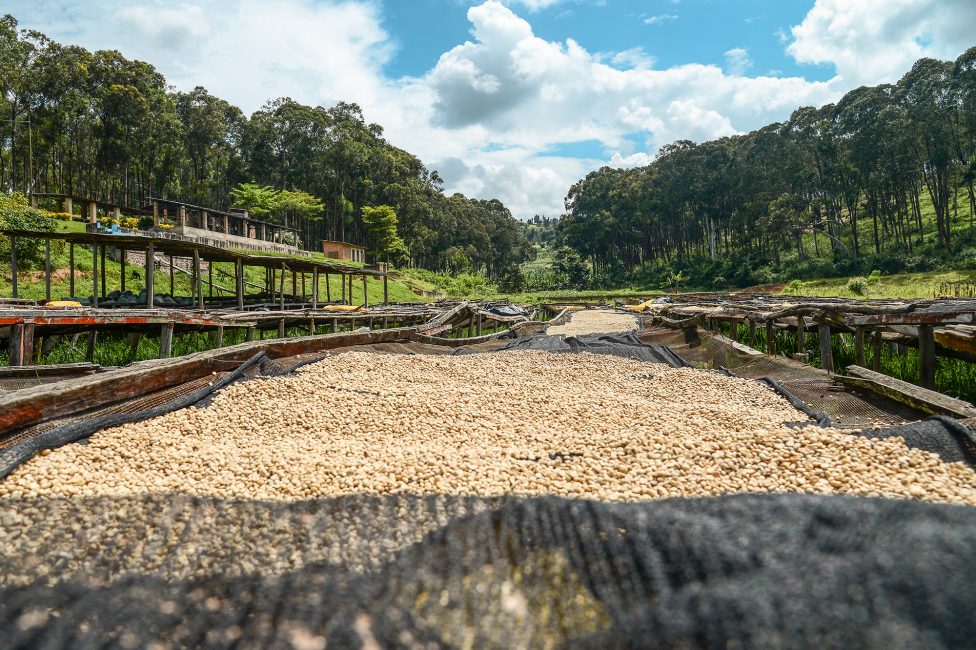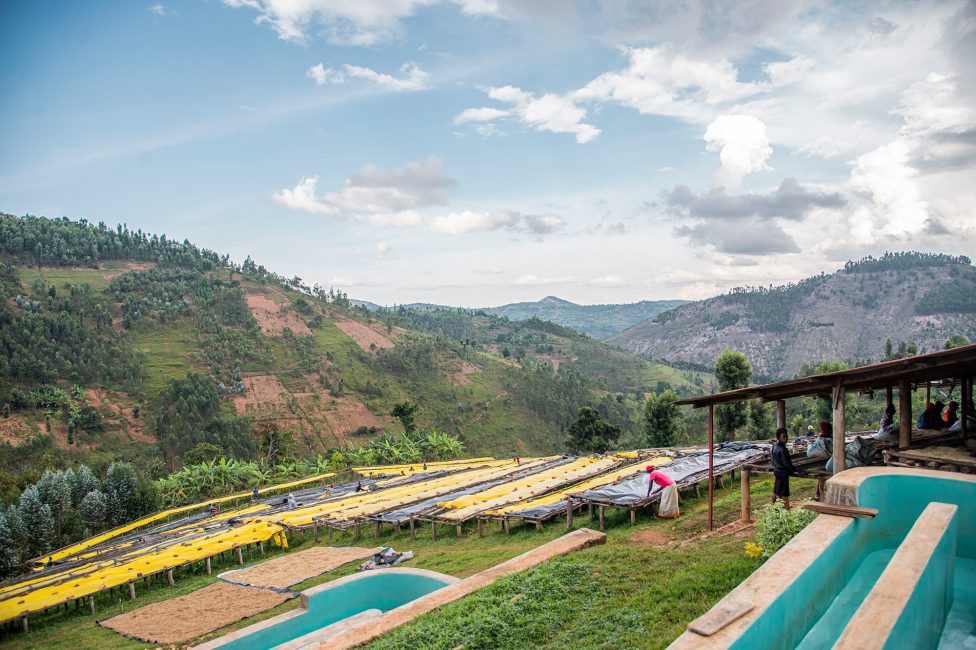Karambi Women’s Coffee
Crisp red apple acidity balanced with honey sweetness and notes of plum, dried figs, purple grapes and blackcurrant.
This special micro lot was produced by a group of women who are members of the Koakaka Cooperative, located in the Southern Province of Rwanda, at the edge of the Nyungwe rainforest.
In the local Kinyarwanda language, Koakaka stands for the ‘Coffee Growers’ Cooperative of Karaba’. The cooperative was established in 2002, with three farmers associations merging together (Karama, Kiyamakara and Rukondo).
The majority of Koakaka’s members are very small-scale producers who typically own less than a quarter of a hectare of land on which they cultivate an average of only 300 trees, alongside other subsistence food crops such as maize and beans.
The cooperative has two fully operational washing stations, Karambi, in Huey, and Muganza, in Nyagambe. They are also currently building a third washing station called Mbazi which is located just over the border of Nyagambe (near Buf Cafe’s washing stations).
This particular lot was processed at the Karambi washing station which was established in 2003. This washing station has around 1,316 members, 292 (22%) of which are women.
Recently, the women of Karambi banded together and created an association, and made the decision to seperate their coffee and market it as their own. To distinguish their coffee and ensure it is processed separately, the women of the cooperative have organised to deliver on specific days of the week.
As members of the cooperative the members are guaranteed a minimum price for their coffee cherries, and are paid a good price to ensure the very best quality cherries are delivered. In addition to this they receive a bonus which is directly linked to the quality and prices paid for the coffee. By separating their coffees out, the women are able to directly benefit from any higher prices paid specifically for their lots (rather than these profits being shared equally amongst all members). This creates a very important and effective incentive for them to work to hard as a collective towards achieving the very best quality possible; and the results are evident in the cup… We cupped all of the lots from the cooperative on a blind table – and this coffee was our hands down was our favourite!
All of the members contributing to this washing station enjoy perfect conditions to grow exceptional coffee, with high altitudes (averaging 1,685–1,870 metres above sea level), good rainfall (1,100–1,300mm annually), and steady temperatures averaging around 17–18 °C. 130 seasonal workers are employed by the washing station during the harvest, with a further 11 full time staff overseeing all operations of the cooperative and both washing stations all year round (6 of whom are women).
Koakaka Cooperative is managed by Safari Bonaventure (who has been the manager since 2010). He is supported by Murekatete Joie Loire, who is the Head Agronomist and oversees quality control and production.
Koakaka’s mission is to:
- Produce exceptional coffee
- Consistently improve the welfare of members, and increase jobs so as to reduce the unemployment and poverty in the region
- Actively protect the environment
Since 2004 the cooperative has been Fairtrade certified, and more recently has become UTZ and Rainforest Alliance certified. They are also members of IWCA, the International Women’s Coffee Alliance.
Members of the cooperative are given a number of services including support for school fees and health services, loan facilities for home loans and farming equipment. They are also given training on agricultural best practice, administration, quality management and how to manage their finances.
Koakaka has consistently been recognised for its exceptional quality, including numerous Cup of Excellence awards in 2008, 2010, 2011, 2013, 2014, and 2015. In July 2016 the farmers of Koakaka Karambi also won the Rwashoscco Coffee Excellence Award, taking home 1st place with a brilliant score of 90.3.
HOW THIS COFEE WAS PROCESSED
This coffee was processed using the washed processing method at the Karambi Washing Station, using natural spring water from the surrounding mountains.
- Members of the Koakaka Cooperative are trained to only select the very ripest coffee cherries from their trees. During the harvest, cherries are delivered daily to the Karambi Washing Station via foot, bicycle or driven by truck from a local pick-up point (they have 70 pick points in the surrounding area). The women have specific delivery days to the washing station to ensure their lots are processed seperately.
- On delivery, the cherries are inspected and sorted to ensure only the very ripest cherries are processed. They are then sorted by weight (and any floaters removed) and pulped on the same day—almost always in the evening—using a mechanical pulper that divides the beans into three grades. After pulping the coffee is fermented overnight in tiled tanks (for 12 -18 hours) without water and then graded again using floatation channels that sort the coffee by weight (heaviest usually being the best).
- The beans are then soaked in clean water for a further 14 hours, before being moved to raised screens for ‘wet-sorting’ by hand—this is a task almost always carried out by women.
- The sorted beans are finally dried in the sun on raised screens (‘African beds’) for two weeks. During this period, the coffee is turned several times a day by hand to ensure the coffee dries evenly and consistently. It is also sorted constantly, with any defects removed.
- Once dry, the coffee beans are stored in parchment, in carefully labeled day lots, until they are ready for milling and export. The coffee is then sent to Kigali, from where it is milled, loaded, and shipped.
